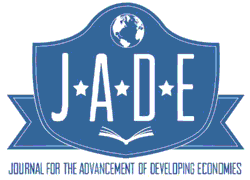Institute for the Advancement of Developing Economies

Journal for the Advancement of Developing Economies
Date of this Version
2015
Document Type
Article
Citation
Journal for the Advancement of Developing Economies 2015 Volume 4 Issue 3
doi:10.13014/K2TQ5ZQN
Abstract
Over the last few decades, Bangladesh has achieved significant progress in providing access to primary education for all children. But, the underprivileged segment of the population still cannot send their children to schools, primarily due to the inflexible nature of the traditional school system that conflicts with their lifestyle and livelihood. Also, the quality of students’ achievements under the traditional system suffers due to low quality of pedagogy. In order to provide a quality education befitting the lifestyle of the underprivileged, a departure from the traditional schooling is proposed. This new model allows students to access and learn from motivated resident teachers in a setting conducive to their lifestyle. Teachers and other learning tools are available when students need them. Students are free from the fear of failure and allowed to achieve their learning competencies at their own pace. Parents don’t need to be selfconscious about their own ability to guide their children or worry about their social or economic status. The proposed new model can be tried and tested in a pilot implementation to assess its merit.
Included in
Econometrics Commons, Growth and Development Commons, International Economics Commons, Political Economy Commons, Public Economics Commons, Regional Economics Commons


Comments
Copyright (c) 2015 JADE